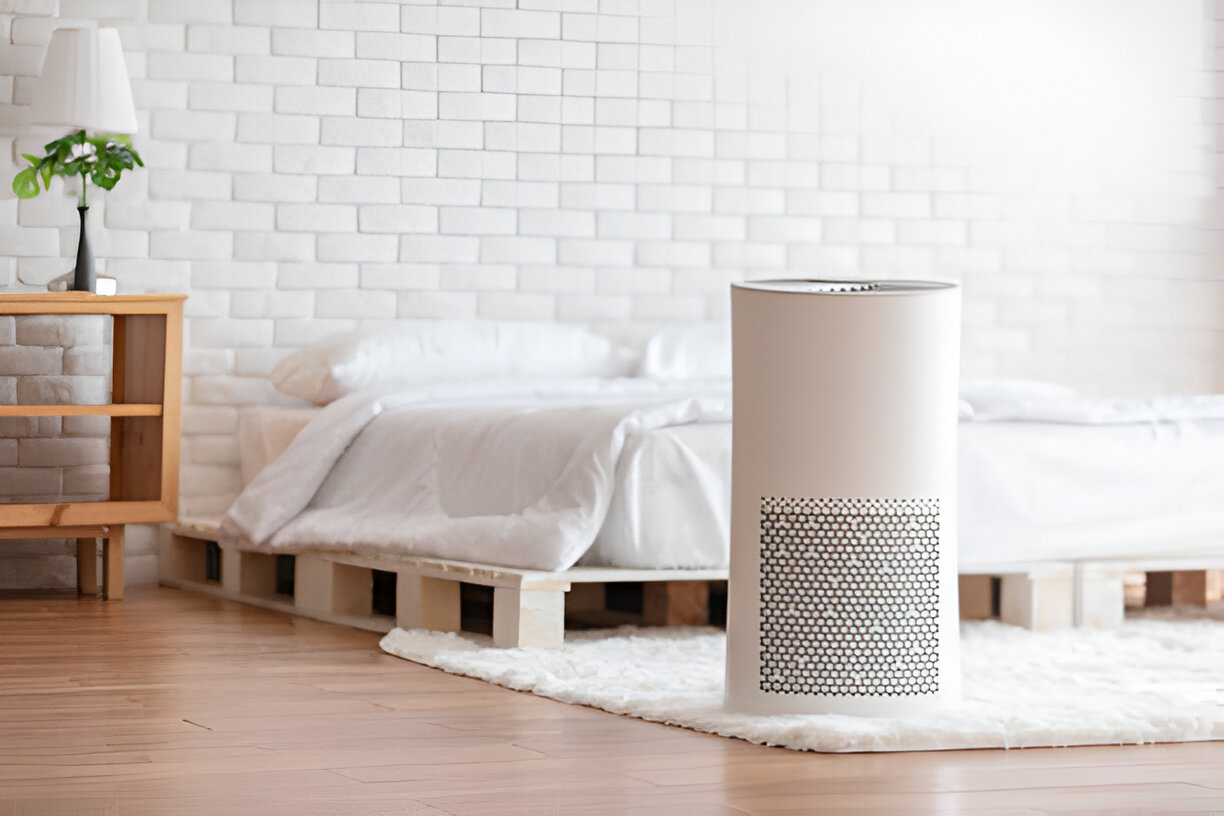
HEPA Air Cleaning in Sun Lakes, AZ
Indoor air quality matters in Sun Lakes, AZ. With long stretches of closed windows during summer, regular air conditioning use, seasonal pollen, and monsoon dust storms, airborne particles can accumulate inside homes and aggravate allergies, asthma, and other respiratory conditions. HEPA air cleaning is a proven, decision-stage solution for homeowners who need measurable reductions in fine particulates and cleaner breathing air throughout living spaces.
Why HEPA matters for Sun Lakes homes
Sun Lakes' desert climate creates two common indoor air challenges:
- High dust and fine particulates carried in by monsoon winds and dust storms.
- Persistent pollen from regional trees and plants during spring and fall.
Combine those with often-closed homes in the heat and you get concentrated indoor contaminants. Residents who are older, have asthma, COPD, or pets will see the biggest benefit from targeted HEPA filtration. HEPA Air Cleaning in Sun Lakes, AZ reduces the particulate load that central filters and standard MERV filters cannot always capture.
What "HEPA" means and what it captures
HEPA stands for High Efficiency Particulate Air. A true HEPA filter removes at least 99.97% of airborne particles 0.3 microns in diameter, which includes many of the most troublesome indoor particulates:
- Pollen and outdoor allergens
- Pet dander and hair-borne particles
- Dust mite fragments
- Mold spores
- Fine smoke and combustion particles
HEPA filters are not designed to remove gases, volatile organic compounds (VOCs), or odors. For those you’ll want additional activated carbon or other specialized media.
HEPA air cleaning options for Sun Lakes homes
Choose the solution that fits your home layout, HVAC system, and health needs:
- Portable HEPA air purifiers
- Best for targeted rooms like bedrooms or living areas.
- Easy to deploy, no ductwork changes.
- Look for CADR ratings and recommended room size.
- Whole-house in-duct HEPA systems
- Integrates with existing HVAC to filter air throughout the home.
- Requires compatible blower capacity and proper housings to avoid excessive static pressure.
- Ideal for comprehensive coverage when you run your AC frequently.
- Dedicated inline HEPA/air handling units
- Used when central blower cannot handle full HEPA pressure drop.
- Provides whole-house filtration without compromising HVAC performance.
- Combination systems
- HEPA + activated carbon for both particulates and odors.
- HEPA + UV for supplemental microbial control.
How to pick the right HEPA product
Key selection factors to evaluate:
- Room size and CADR: Ensure the purifier’s CADR matches the room’s square footage for 4–6 air changes per hour (ACH) for medical-grade performance.
- Filtration efficiency: Confirm true HEPA (99.97% at 0.3 microns) rather than “HEPA-like.”
- Static pressure and HVAC compatibility: Installing HEPA in-duct adds resistance; verify your system can handle it or choose a bypass/inline unit.
- Noise level: Higher fan speeds increase CADR but also noise; consider bedrooms vs common areas.
- Maintenance access: Filters should be simple to inspect and replace.
Installation process and what to expect
Portable units: plug-in, place centrally in the room, and run on recommended fan speed for the room size.
In-duct HEPA systems:
- Site assessment to measure duct size, blower capacity, and static pressure.
- Choose appropriate HEPA housing and pre-filter stage to catch larger debris.
- Professional installation includes airtight sealing, pressure checks, and system balancing.
- Initial testing to confirm expected ACH and particulate reduction.
A professional assessment is important for whole-house installations to prevent reduced airflow or system strain.
Maintenance schedule and filter replacement guidance
Maintenance frequency in Sun Lakes may be higher than in less dusty regions. General guidance:
- Pre-filters: Inspect monthly; washable pre-filters should be cleaned every 1–3 months.
- HEPA filter element: Typically replaced every 6–18 months depending on use, indoor pollutant load, and manufacturer recommendations. In dusty/monsoon-prone periods, plan on the shorter interval.
- Activated carbon cartridges: Replace every 3–12 months based on odor levels and VOC exposure.
- Portable unit checks: Clean intake grills and verify fan operation monthly.
Warning signs you need a filter change:
- Noticeably reduced airflow.
- Increase in settled dust or sneeze symptoms indoors.
- Filter indicator lights or replacement timers.
- Persistent odors that carbon media should remove.
Expected health and air-quality benefits
When sized and installed correctly, HEPA air cleaning in Sun Lakes homes delivers measurable benefits:
- Significant reductions in airborne allergens and particulate counts (commonly 90%+ reductions in captured particle ranges inside treated spaces).
- Fewer allergy and asthma flare-ups for many occupants.
- Less visible dust accumulation on furniture and electronics.
- Longer life and cleaner coils for HVAC equipment when paired with proper pre-filtration.
For best results, pair HEPA filtration with proper ventilation, source control (limit indoor smoking, strong chemical cleaners), and routine HVAC maintenance to keep systems operating efficiently in Sun Lakes’ desert environment.
Common questions and limitations
- Will HEPA remove odors or VOCs? No — add activated carbon or specialized media for gases and smells.
- Do HEPA units protect against viruses? HEPA captures many respiratory droplets and aerosolized particles; combining HEPA with ventilation and hygiene measures provides the strongest protection.
- Is HEPA necessary if I already have a MERV filter? Higher MERV filters capture more particulates than standard filters, but true HEPA captures submicron particles many MERV filters miss. Whole-house HEPA or targeted portable HEPA can be complementary.
HEPA air cleaning is a decision-stage investment for Sun Lakes homeowners focused on measurable indoor-air improvements. Proper selection, professional installation for whole-house systems, and a proactive maintenance schedule tailored to local dust and pollen conditions will deliver the best outcomes for health and comfort.




_11zon%20(1).webp)


